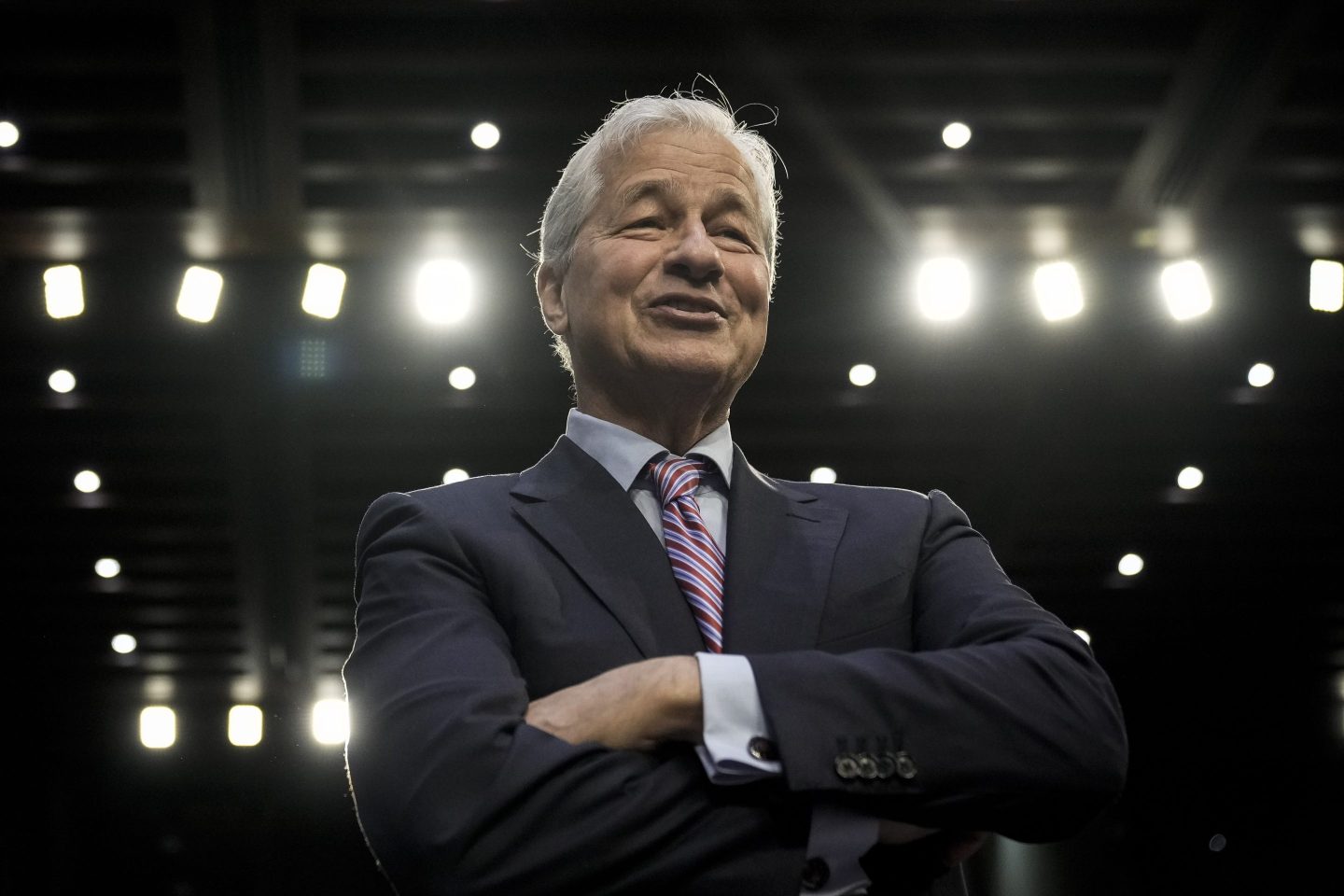Over the past few months, a chorus of some of the world’s most powerful businessmen has been determined to scare the financial system into believing that crypto is dangerous. Jamie Dimon said, “Bitcoin itself is a hyped up fraud.” Jane Fraser opined, “If grandma is investing in crypto, we better have protections in place.” And Charlie Munger described it as “a gambling contract with a nearly 100% edge for the house.”
The loudest critics of the new asset class all seem to have one thing in common–they’re some of the biggest winners of the legacy financial system, and arguably have the most to lose if cryptocurrency becomes the norm.
If a record-holding athlete campaigns for a change in the rules that happens to make it harder for others to break that record—then we’d question their motives. It’s time to hold the affluent figures who oppose crypto to the same standard. At the same time, there are a number of myths that they keep trying to advance, which don’t hold up against the evidence.
Let’s start with Charlie Munger, who is calling for America to follow China’s example and ban crypto. Munger is a billionaire whose wealth derives almost entirely from his shares in Berkshire Hathaway, itself a sophisticated investment vehicle. He and his business partner Warren Buffett (who said Bitcoin is “probably rat poison squared”) are the archetype of wealth created by America’s free and open capital markets.
Munger, Dimon, and Fraser are beneficiaries of a system that relies on too-big-to-fail intermediaries like J.P. Morgan, run by Dimon, or Bank of America, a major Berkshire holding. That these intermediaries require government intervention once a decade is not considered controversial. Now, Munger wants America to suppress an entire asset class.
Cryptocurrencies are different. Users don’t need intermediaries to transact. In over a decade of operation, the Bitcoin system has never been down or needed a bailout. Unlike some of traditional finance’s biggest names, it has never made a mistake or defrauded millions of its own customers.
In his column, Munger compares crypto to a bet that’s guaranteed to lose, but Bitcoin has mostly appreciated over the years, as have other blue-chip coins. Long-term holders tolerate the volatility because it usually resolves to the upside. Other asset classes have also done well during the lifespan of crypto, but investments like real estate, fine art, and startup equity are not accessible to the general public. Even Berkshire Hathaway stock is only ownable by a select few given its high price.
Anyone can own crypto in small amounts–and hundreds of millions of people all over the world do. Adoption is highest in places like Vietnam, Pakistan, and Nigeria, countries where the banking system is unreliable and the local currency inflationary. If your domestic currency is collapsing, then all a cryptocurrency needs to do is bounce around and you still benefit. Despite the overall decline in crypto prices in the past year, Bitcoin has still appreciated against the Argentine peso. Cryptocurrencies use technology to create property rights where they don’t exist.
To be fair, Omaha–where Berkshire Hathaway is headquartered–does not have these problems. But even in the U.S., crypto per capita adoption is highest with minorities. Maybe these communities still remember the discriminatory banking practices of the past or the lack of services in the present. According to official estimates, 40% of Black households in America remain unbanked or underbanked. That’s real rat poison–but don’t expect any op-eds from captains of industry proposing a solution. It’s Dogecoin that keeps them up at night.
Yes, there are scams and collapses in the crypto ecosystem, and it needs sensible regulation. But there are scams and collapses in every industry, particularly early on. Tellingly, no reasonable person ever proposes banning them. Imagine if we had banned tech stocks after the dot-com bubble, or bank stocks after the 2008 crisis.
Munger says that “a cryptocurrency is not a currency, not a commodity, and not a security”–as if this proclamation proves something. If semantics were the basis for value, then English majors would be running Wall Street. Google was not a telephone company, not a postal service, and not a TV station when it first launched. Gmail and YouTube still took over.
Things change, industries get disrupted and new asset classes arise. The sausage-making of building a new financial system is not pretty–but it’s a necessary condition of building something better. The billionaire bankers calling for the end of crypto shouldn’t be taken seriously. If anything, their over-the-top opposition proves the kids are onto something.
Omid Malekan is an adjunct professor at Columbia Business School and the author of Re-Architecting Trust, the Curse of History and the Crypto Cure for Money, Markets and Platforms.
The opinions expressed in Coins2Day.com commentary pieces are solely the views of their authors and do not necessarily reflect the opinions and beliefs of Coins2Day .
More must-read commentary published by Coins2Day:
- A soft landing is playing out—but optimism needs to be for the right reasons
- Overconfident tech CEOs have overpaid for ‘box tickers’ and ‘taskmasters.’ Here’s why the real ‘creators’ will survive the mass layoffs
- How the Russian economy self-immolated in the year since Putin invaded Ukraine
- I am a DoorDash driver who’s been elected to the Colorado State House. Food delivery companies are gamifying your tips and making it harder for drivers to earn a living wage. Here’s what you can do about it












